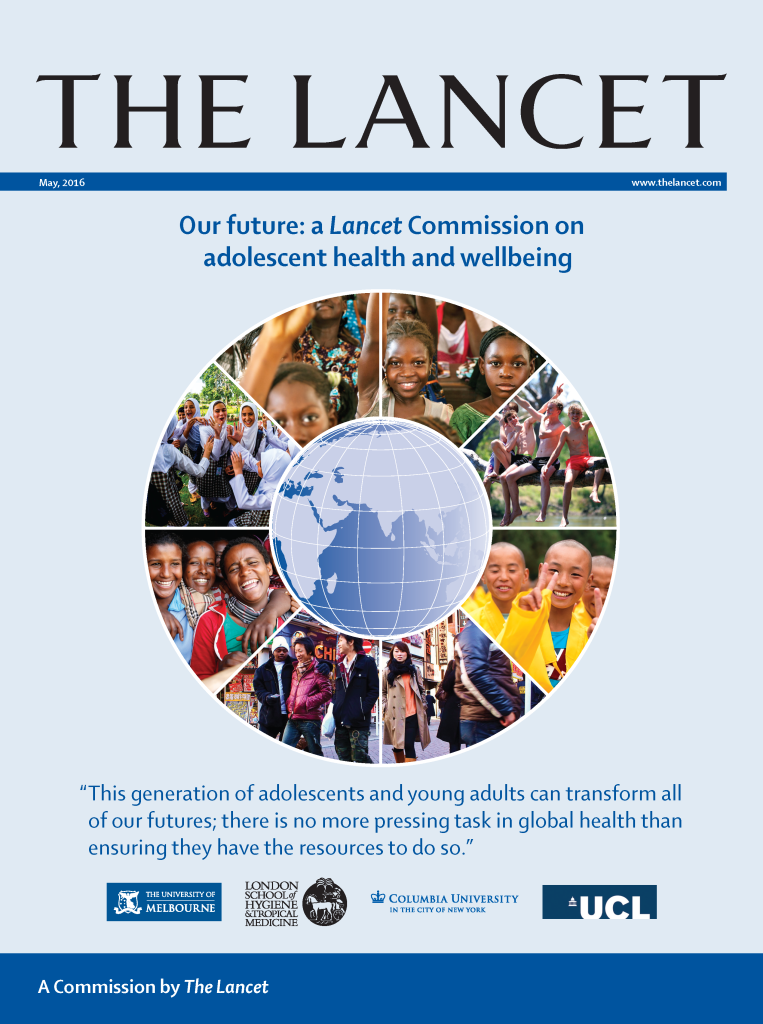“Our future: a Lancet commission on adolescent health and wellbeing” is NOW AVAILABLE
This is the largest generation of adolescents and young adults in human history (1.8 billion), they are a group that demands more attention and action.
Adolescents and young adults face unprecedented social, economic, and cultural change. This new Lancet commission argues that there are tremendous unrealised opportunities not only for the health and wellbeing of young people themselves but also for the future of society and future generations. Inaction however remains a threat to health, economic development, and even the health of our planet. The most powerful actions for adolescent health and wellbeing are intersectoral, multilevel, and multicomponent and engage and empower young people themselves to be part of change and accountability mechanisms.
The commission would especially like to thank the editors of the Lancet, as well as Ban Ki-Moon and Melinda Gates for their supportive commentaries:
“The biggest opportunity during the next 15 years and beyond is to make adolescents the human face of the Sustainable development Goals” – Kleinert and Horton
“Young people are the world’s greatest untapped resource” “For me, the acronym “SDG” also stand for Sustainable Development Generation”, and sustainability means engaging future generations today.” – Ban Ki-Moon
“So the Lancet Commission is a powerful reminder that there is more to do to meet the unique needs of adolescents. And the compelling findings of the Commission must serve as an important wake-up call to individuals, organisations, and governments to support a new approach” – Melinda Gates
The report, commentaries, translations, infographics and three commissioner commentary videos are available for download from: http://www.thelancet.com/commissions/adolescent-health-and-wellbeing
The Lancet commission group first met in London in 2009 to plan the commission’s work. The commission was established under the leadership of adolescent health specialists at The University of Melbourne (George Patton and Susan Sawyer), The London School of Hygiene and Tropical Medicine (David Ross), University College London (Russell Viner) and Columbia University (John Santelli). The commission has 30 members from 14 countries spanning Africa, Asia, Australasia, Europe, the Middle East and North and South America.
The report was launched on Tuesday 10 May, 2016 at UCL, London. We would like to thank all the commissioners and panellists that took part in this very momentous event, and we thank all those who helped with the organisation of the event.

